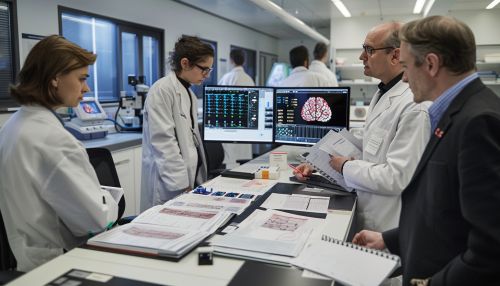International Panel for Neuromyelitis Optica Diagnosis
Introduction
Neuromyelitis Optica (NMO), also known as Devic's disease, is a rare neurological condition that primarily affects the optic nerves and spinal cord. The International Panel for Neuromyelitis Optica Diagnosis (IPNOD) is a global consortium of neurologists and researchers dedicated to the diagnosis, treatment, and research of NMO. This article will delve into the establishment, objectives, and contributions of the IPNOD in the field of NMO.


Establishment of IPNOD
The International Panel for Neuromyelitis Optica Diagnosis was established in the early 21st century in response to the need for a standardized approach to diagnosing and treating NMO. The panel consists of neurologists, researchers, and medical professionals from around the world who specialize in neurological conditions, specifically NMO.
Objectives of IPNOD
The primary objective of the IPNOD is to develop and promote a standardized approach to the diagnosis and treatment of NMO. This involves conducting and supporting research into the causes, symptoms, and potential treatments of NMO, as well as developing diagnostic criteria and treatment guidelines.
Contributions to NMO Research
The IPNOD has made significant contributions to NMO research. These include the development of the first international consensus diagnostic criteria for NMO, which has been widely adopted by neurologists and researchers worldwide. The panel has also been instrumental in advancing our understanding of the pathophysiology of NMO, including the role of the immune system and the identification of specific autoantibodies associated with the disease.
Diagnostic Criteria
The diagnostic criteria developed by the IPNOD are based on clinical, radiological, and laboratory findings. These criteria have been refined over the years to improve their sensitivity and specificity, and they are now considered the gold standard for diagnosing NMO.
Treatment Guidelines
The IPNOD has also developed treatment guidelines for NMO, based on the latest scientific evidence. These guidelines provide recommendations for the management of acute attacks, long-term treatment to prevent relapses, and symptom management.
Future Directions
The IPNOD continues to play a pivotal role in NMO research. Current initiatives include further refinement of the diagnostic criteria, development of new treatment strategies, and research into the underlying causes of NMO.
